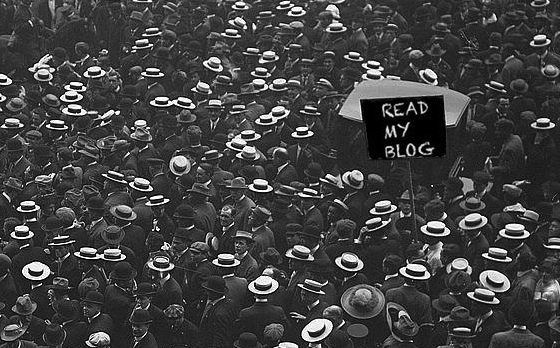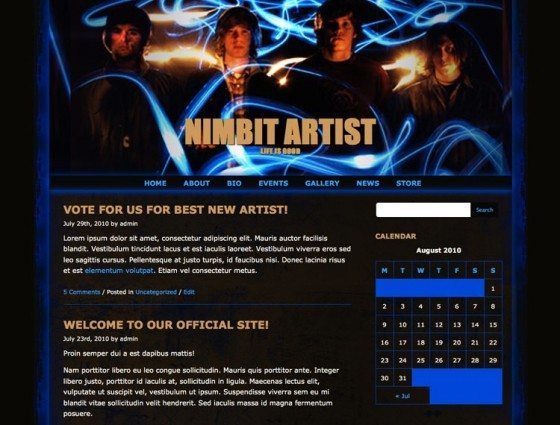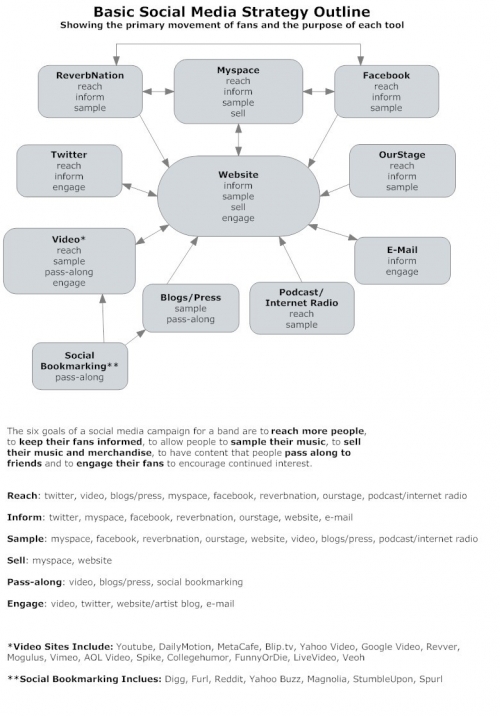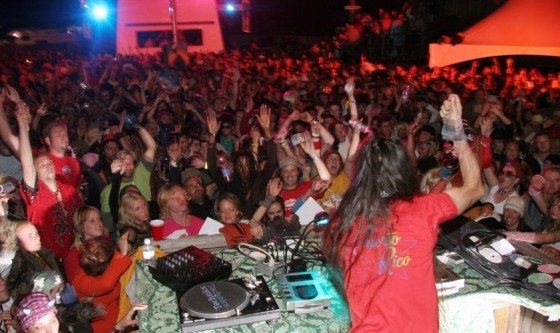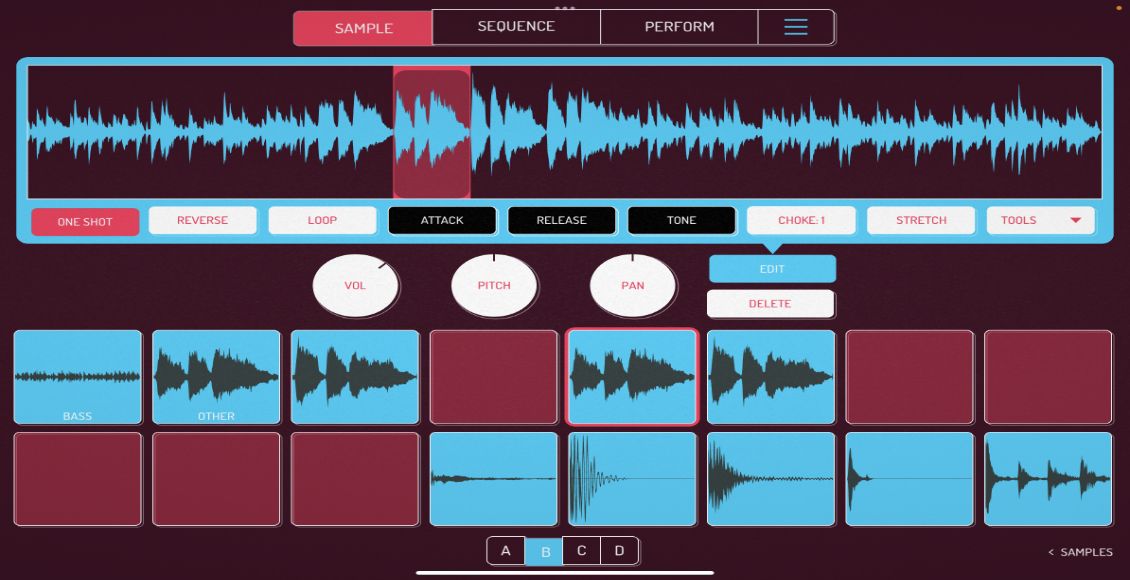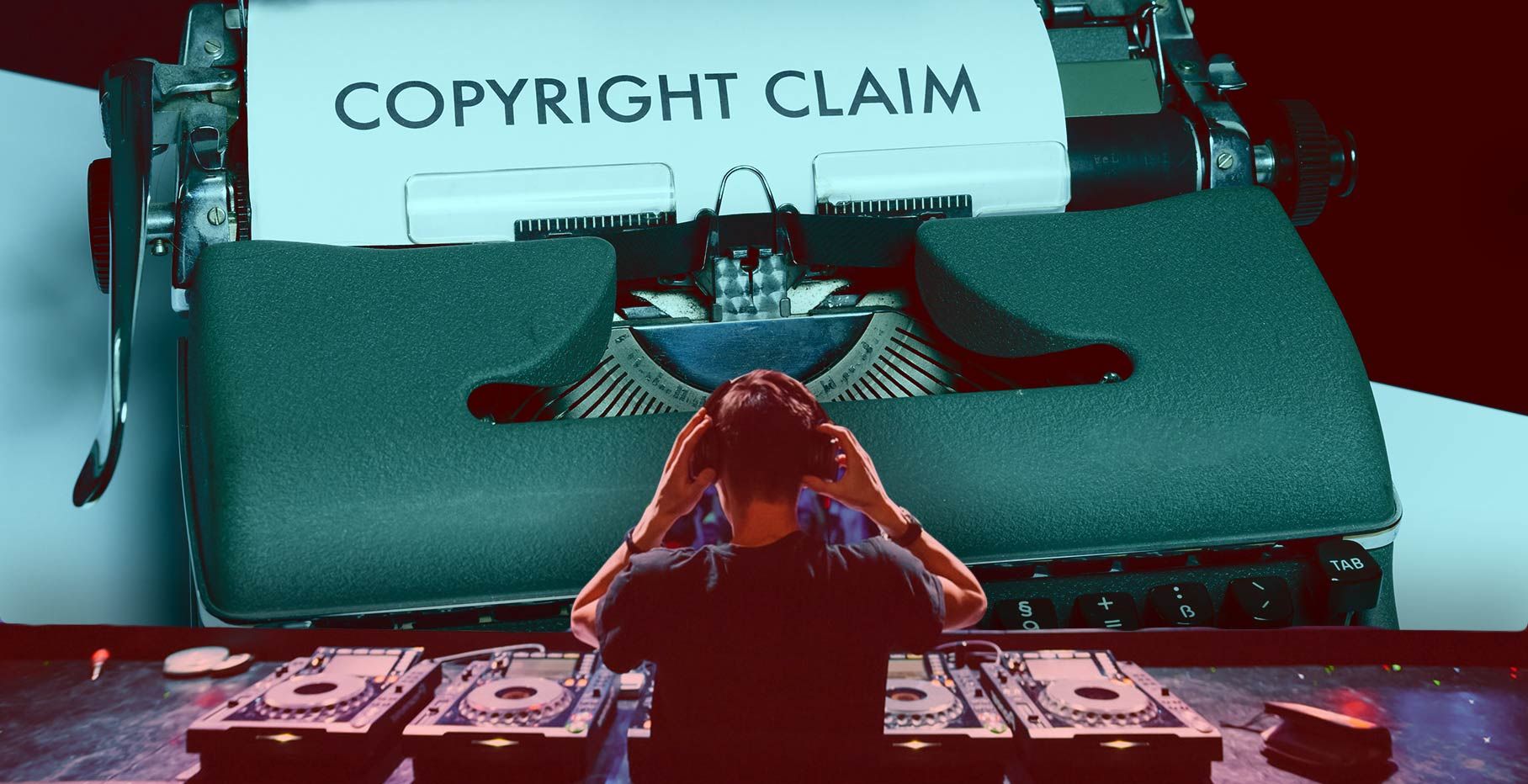Recently it came time to update DJ TechTools founder Ean Golden’s artist website. Since the last update was more than three years ago and a lot has changed since then, he was wondering: Does anyone even need a website anymore? Why not just focus on Facebook/Twitter and ditch the .com altogether? Since you’re probably wondering the same thing, we scoured the net and asked industry professionals for answers.
To Ditch or Not to Ditch the URL

With Facebook, Twitter, YouTube and SoundCloud seemingly in control of music fans’ attention, and a slew of other social media services for musicians available, you don’t necessarily need to have your own web domain these days to build your fan base online. Personal websites require money and time to create and maintain — two resources DJs and musicians must always use wisely.
However, there are still very compelling arguments for maintaining a personal website these days. Constantine Roussos, a music industry entrepreneur, is trying to create a .music domain extension. His recent “16 Biggest Reasons to Have Your Own Website” list created a tremendous amount of buzz amongst industry insiders as he has relentlessly toured music conferences around the globe while advocating his cause. Here is his excerpted list — it’s thick on marketing speak, but it makes a lot of sense:
1. You own your website.
2. You are branding your artist/band name, not a third-party website.
3. You never know if that third-party website will exist in the future or be as relevant (for example, MP3.com shut down). All your “friends” left MySpace, and unless you captured their email through your official site, you are in trouble.
4. You control your search engine results. It is easier to get ranked #1 for your artist/band name if you have your own dedicated domain name. You can also add search “juice” or “pagerank” to your official page by linking to your official site from social sites, as well as others linking to you.
5. It is a long-term strategy.
6. Visitors to your website have a much higher sales conversion ratio than third-party sites.
7. You control all the content and brand image.
8. You portray professionalism. Would anyone in the press take you more seriously if you had a website versus not having one? First impressions count.
9. You can funnel and aggregate all your social media and widgets in one location, where it is convenient for your fans to find information about you.
10. Flexibility. You can create polls, add any programming, widgets or modules of your choice without third-party restrictions.
11. You have no fear of being deleted because you are being too “commercial.”
12. You can own your shopping cart and keep more profit from your sales.
13. You can add your own advertising and sponsors on your page.
14. You can offer product bundles and competitions for your fans.
15. You can build credibility with your fans, create a fan club area for your superfans, as well as dedicated message boards to interact with your fans.
16. You are investing in yourself and not others. Websites are like cheap virtual real estate.
Perhaps you’re convinced by those arguments but still don’t have a lot of time or cash to put into your own website. Consider using Nimbit’s Instant Band Site as a solution. Instant Band Site is a WordPress plug-in that uses a template based format to create a music website with a minimal amount of labor. The template formats may not be visually stunning, but this service does offer many shortcuts to getting your site running.
Just like WordPress, Nimbit has a free account or premium featured paid accounts. Instant Band Site with NimbitFree gives you a store to sell music directly from your site, an email list sign-up, a streaming music player, connections to your Twitter, Facebook, YouTube and MySpace, integration with photo libraries and other WordPress add-ons, and an artist bio, blog, and event calendar. Paid Nimbit accounts start at $12.95 a month and add a complete store for selling physical merchandise with credit card processing and order fulfillment, as well as many other features.
While owning your own website will cost you for the domain name and web hosting, there is a lot you can do with minimal expenditure.
The Online Juggling Act
While DJs short on time may wish to concentrate only on social networking tools, the consensus we found among music industry professionals, pundits and DJs themselves was to strike a balance between your own site and your social media sites.
“You should have have ‘www.yourname.com’ as your homebase online, which feeds out to and back to all of your social media sites,” says Ariel Hyatt, a music publicist and author who successfully transitioned from pitching traditional media to all digital and social media in 2006. “Anyone who lands on your website should get samples of your music and links to your MySpace, Facebook, Twitter feed, and any other key pages that you update often,” Ariel said.
The following graphic has become a classic in social media strategy and shows how your different online tools can work together.
It’s all well and good to suggest spending your waking life on social networks instead of doing what you know and love — DJing, so to save time on social media management, Ariel highly recommends utilizing Artistdata.com, SocialOomph.com, and/or Ping.fm. “These will vastly cut down on your updating time,” she says.
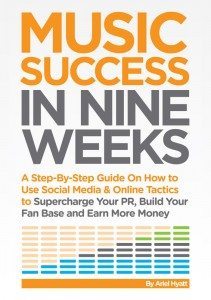 To some, being a Facebook and Twitter chatterbox comes naturally, but others don’t know where to begin. Ariel offers a social media “Food Pyramid” strategy that ranks the types of suggested posts in inverted order. Notably, she suggests that only one out of ten Facebook and Twitter posts be hardcore self-promotion, so that you don’t annoy your peeps by over-hyping yourself. The other nine out of ten posts should be split up between simple photo links, links to articles or videos you like, and direct messages to people within your network. Read more on this strategy or get Ariel’s book.
To some, being a Facebook and Twitter chatterbox comes naturally, but others don’t know where to begin. Ariel offers a social media “Food Pyramid” strategy that ranks the types of suggested posts in inverted order. Notably, she suggests that only one out of ten Facebook and Twitter posts be hardcore self-promotion, so that you don’t annoy your peeps by over-hyping yourself. The other nine out of ten posts should be split up between simple photo links, links to articles or videos you like, and direct messages to people within your network. Read more on this strategy or get Ariel’s book.
Artistic Merit
We looked at Bassnectar as a case study for a DJ/producer who has galvanized a rabid and loyal fan base through a robust website, as well as Facebook and Twitter. Lorin, the man behind Bassnectar, is now in a place most of us are not, in that he has a crew of a few people working with him, including work on his website and social networks. However, the way he separates the duties of his website, Facebook and Twitter can inform us all.
Lia Holland works for Bassnectar Labs doing PR and assisting with the online sites. She said Lorin only interacts with fans in the comments sections of his own website so he can save time for production and touring, while his crew maintains the Facebook page entirely. “Bassnectar.net caters to a growing squadron of hardcore fans,” she says. “And Facebook is perhaps the primary means of reaching out to the entire fan base.” They run frequent contests on Facebook and post the “family” photos (a picture Lorin takes with the crowd at the end of each night).
“Our approach to Twitter is more lighthearted,” Holland continues, “with Lorin maintaining the Bassnectar account and everyone on the touring crew having their personal Twitter feeds syndicate to the iPhone app for fans to read.”
“People love Bassnectar because of the music and the live show,” Holland says. “We like to use every aspect of the Internet to digitize that tactile experience so fans want to pass it on.”
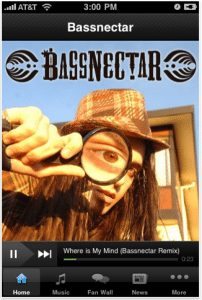 Even More To Do?
Even More To Do?
As if there weren’t enough to keep you occupied already, are you now expected to have a mobile app like Bassnectar does? Not necessarily. It can be phenomenal way to connect and stand out, but don’t rush into it unless you already have a large fan base and know there is a demand for an app. Ariel says, “start a mobile phone text messaging list first, using Mozes.com or Myxer.com to gauge how interactive your mobile community is before you launch an entire app for yourself.” If you decide it is app time, check out the Mobile Roadie service for app building. -Markkus Rovito
Additional reading:


